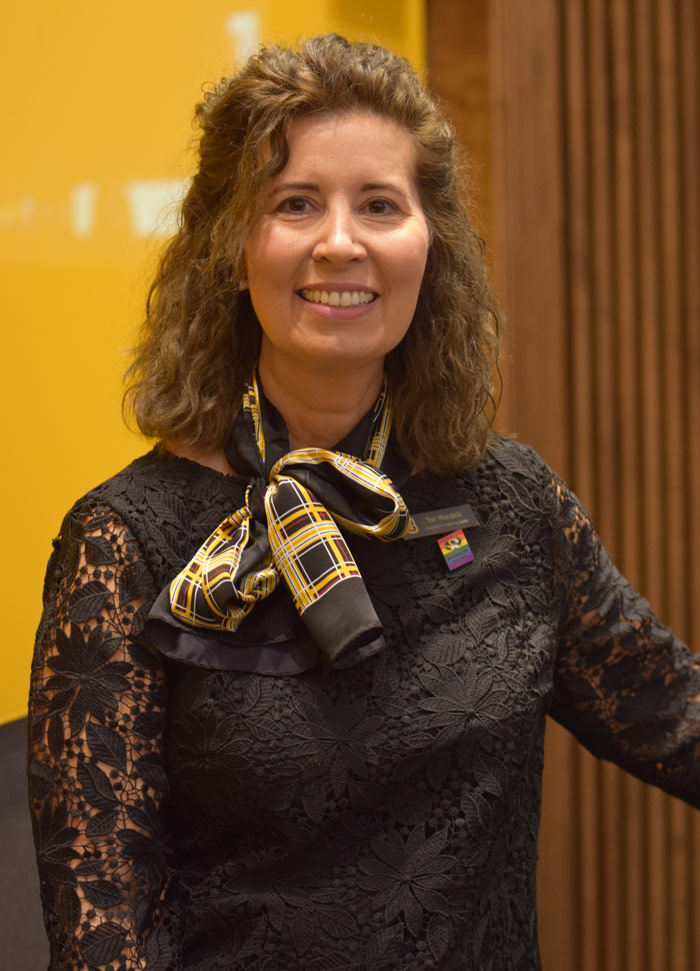December 15, 2021

Dr. Victoria (Tori) Mondelli, founding director of the Mizzou Teaching for Learning Center
Enhancing inclusivity in teaching and classrooms was the primary focus of the College’s annual Symposium on Engineering Teaching Excellence, held Friday, Dec. 10 as a hybrid online and in-person event.
The Dean’s Council on Teaching Excellence organized the symposium to help Engineering instructors enhance their classroom environment through inclusive teaching methods. Roger Fales, associate dean of student services and academic programs for the College of Engineering, helped host the event.
“Research has shown when your class is more inclusive, it helps class participation and creates a more impactful overall class experience for students,” Fales said. “This year’s symposium is designed to highlight best practices and principles to benefit our Engineering instructors and ultimately, our Engineering students.”
Keynote speaker Tori Mondelli, founding director of the University of Missouri Teaching for Learning Center, opened the symposium by emphasizing why inclusive teaching is important from a student success perspective.
“Research supports that inclusion is absolutely critical for effective learning,” she said. “It contributes to positive student experiences in the learning environment, which leads to higher retention rates for students, including underserved groups.”
Mondelli highlighted how an instructor developing an upfront, well-defined structure helps with student learning. Also, she explained that transparency for assessments is another strategy to assist students for success in the course. An overarching theme of the session was how adopting a strengths-based approach while creating a welcoming environment signals all learners that they belong in the course, and have valued talents, skills, and traits to be the future of the discipline.
Adjusting Course Learning Objectives
Jonathan Cisco, director of partner success at Coursetune and a senior fellow of the Higher Education Academy, presented on how to assess student learning outcomes.
He broke down the student learning process, including the why, when, where and how of student learning. He then highlighted Bloom’s Taxonomy of Learning for learning assessment and how to align course assessment and learning objectives using this taxonomy.
As an example, Cisco highlighted midterm exam questions, and that those questions should match up with the course objectives. If there are specific exam questions being routinely missed by many students, then the instructor can determine whether a course objective is being met. This will help instructors be able to potentially adjust their course learning objectives and/or coursework and ultimately benefit student learning outcomes.
Inclusivity in the Classroom
In addition to the presentations, symposium attendees heard from current Engineering students regarding their experiences with inclusivity in the classroom and around campus.
Insights were given by:
- Ymbar Polanco Pino, a senior in mechanical engineering
- Jordan Hayes, a junior in civil engineering
- Paul Orton, a senior in computer science
- Blaine Reid, a junior in electrical engineering